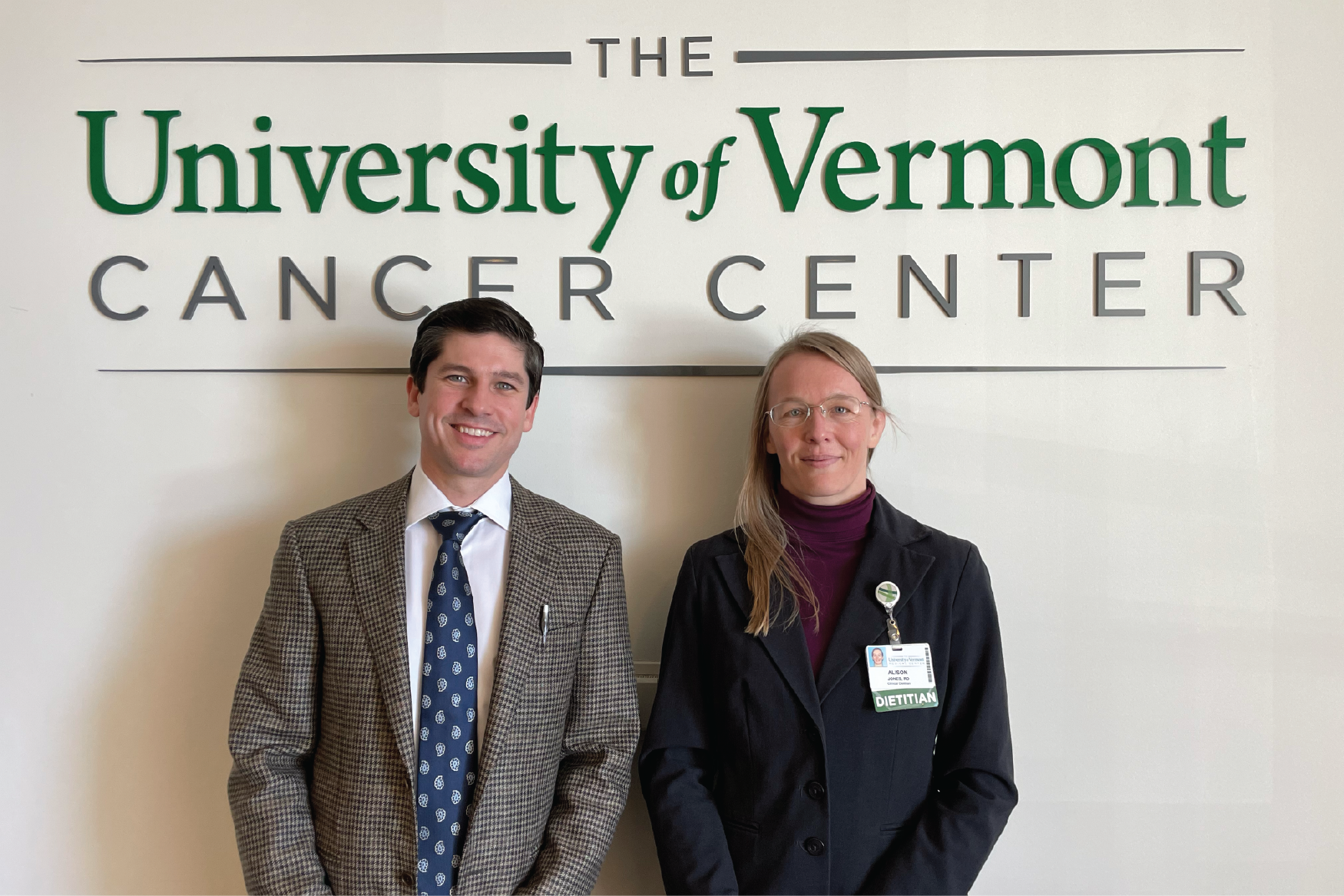
Conor O'Neill, MD, and Alison Jones, RD
Thomas Whalen was devastated to be battling cancer for the second time, but a nutritional intervention would change his life. The new program, made possible through philanthropic support by the Victoria Buffum Endowment, was envisioned by UVM Cancer Center member Conor O’Neill, MD.
Dr. O’Neill, a surgical oncologist at the University of Vermont Medical Center, saw too many of his patients experiencing nutritional challenges which interfered with their course of treatment and quality of life. With funding provided by the Buffum Endowment, O’Neill set out to test his theory that incorporating a dietician into every aspect of patient care could reduce these challenges.
With the one-year grant, Alison Jones, RD, joined the team as a full-time dietician. This meant that when Whalen first saw Dr. O’Neill, Jones was there to support him from the beginning. Jones provided more than just one-time nutritional support, she served as an integral part of Whalen’s journey, connecting his nutritional needs with his medical care during both his course of treatment and his recovery. Reflecting on having Jones on his team, Whalen said “I would not be here if I didn’t have a dietician that worked with my team of doctors. Through her expertise, Ali played several critical roles in my journey, and her impact was astounding”.
Nutrition support may improve patient outcomes
Whalen is just one of nearly 70 patients Jones has worked with at over 600 established patient visits. While Dr. O’Neill intends to share full findings at the conclusion of the program, early evidence points to numerous success stories, with patients experiencing decreased hospital stay lengths, improved time to surgery, and earlier detection of recurrence. “It is really joyful to see patients implementing changes, working hard, and feeling proud of the changes they are able to make”, reflected Jones.
Nutrition support highlights the need for transdisciplinary teams
From the patient’s perspective, the impact of the program goes beyond nutritional support. Having Jones on his care team, Whalen reported having a more personal and positive experience. With additional funding, Jones and O’Neill intend to build on this vision. “Our next goals go beyond nutrition, we are working hard to develop care teams that include physical therapy and strength training, social support, and rehabilitation programs. Incorporating entire teams into patient care from the time of diagnosis,” said O’Neill. Whalen whole-heartedly agrees that every patient deserves access to this nutrition program – “it is through Ali’s knowledge and care that I am here today. More than the medicine, more than anything else, it was her.”